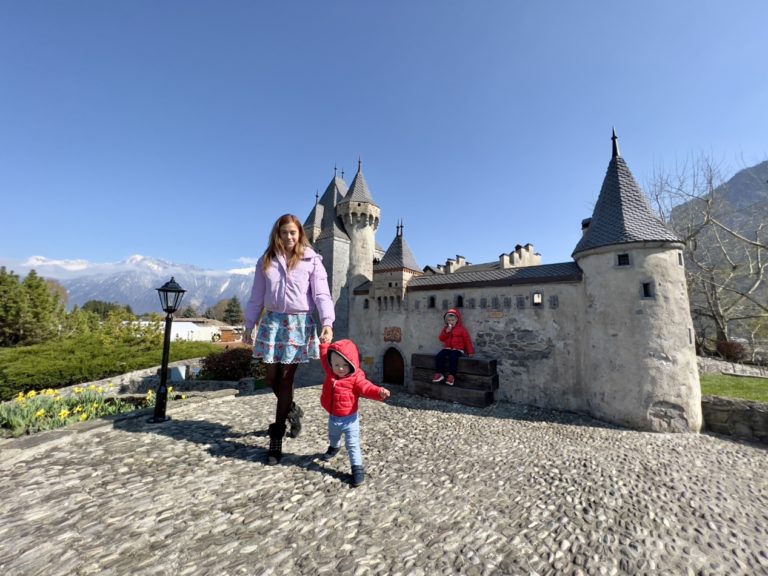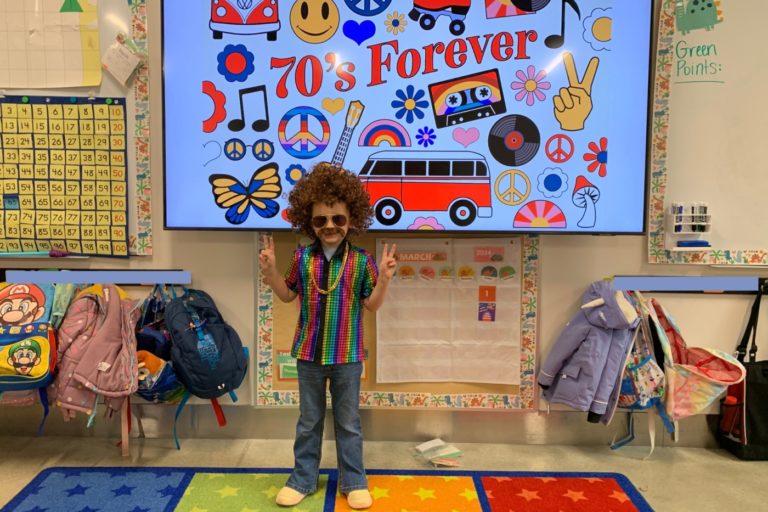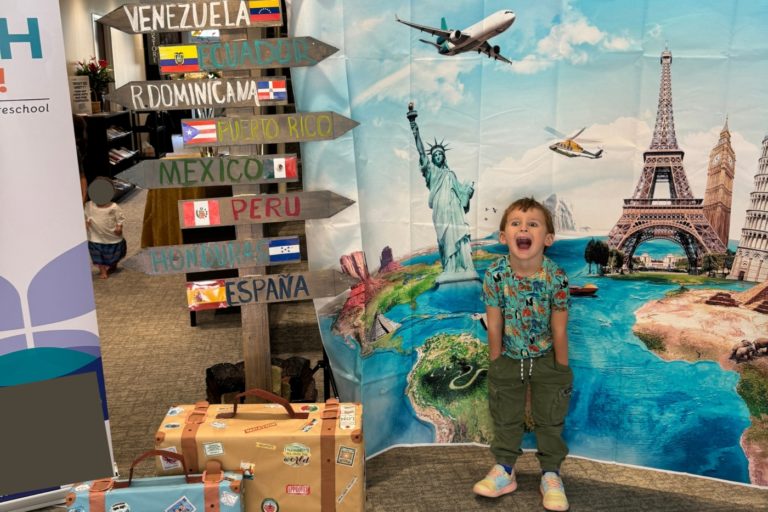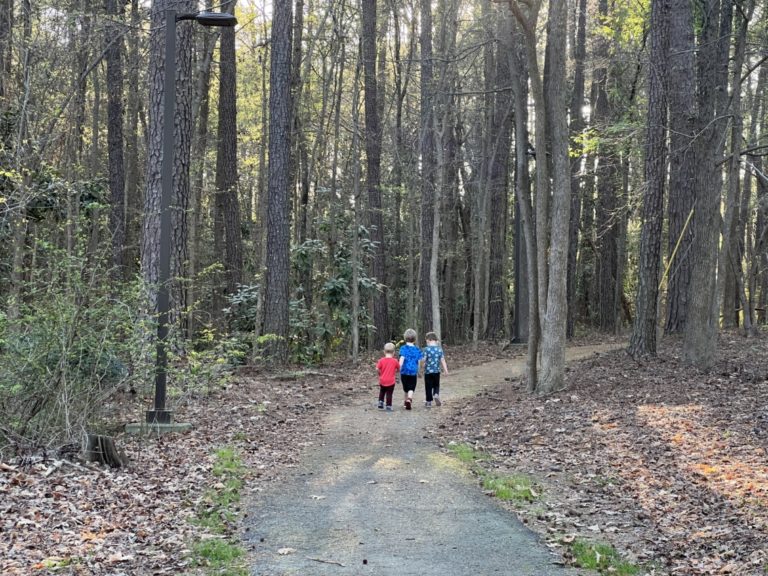I Moved Back to Europe After Years in the US: It’s Not As Idyllic as Portrayed
Following a long-term plan to introduce my kids to a different way of living, I recently relocated back to Europe from the US, to France specifically. While I grew up in Poland, I left the country as soon as I reached adulthood and ventured to the UK, Netherlands, Mexico, and the US.
As more countries opened up to digital nomads and remote work became normal, more and more Americans were starting to pursue the European dream. News articles, influencer posts, and everyone was suddenly living a safer, cheaper, healthier, and more meaningful life in Europe.
Even within my circle of friends many who sampled a sabbatical or exchange anywhere in Europe was convinced that if they could, because of the job or their spouses’ job, they would move to Europe in a heartbeat.
Was I being a dumbass for staying to the US? I kept asking myself. I had that “golden visa” of a European passport, and so did my husband and children. We could leave any time we wanted and after a last year’s summer trip to properly scout potential cities to move to we eventually bought a one-way ticket to France with no determined plan.
Now that I feel like we properly live in France, I began to realize that in a way grass might always be greener on the other side…

Growing Up in Europe
Growing up in Poland in the 90s was undeniably filled with Western admiration. I remember the transition from things from the communist period, like the same furniture in every small apartment, through Fiats 126p, to foreign brands entering the market with grandmothers purchasing every novelty fruit or candy they found in the supermarket, telling us it’s from the west.
I remember a lot of poverty, with everyone having or installing window crates, because it wasn’t uncommon to have a flat invaded. My grandma actually had two home robbers, which made her install an extra crate gate over the balcony door on the second floor. Once we got phones, we knew that if they got stolen, we might have a chance of rebuying them at the local illegal market… along with pirated video games and DVDs. Holidays abroad were a huge luxury, and if someone finally went abroad, it was as if they had traveled to another world.
I was amazed to observe the rapid changes that were taking place in Poland literally from week to week in the 2000s. Suddenly, as the European Union opened, many Poles picked up and left to make money abroad – to the UK or the Netherlands. The luckiest ones got to go to the US to experience the American Dream.
With more money coming in, a lot of us, teens by then, were fascinated by the US and the possibilities, big houses, and luxury items seen only in American movies. We haven’t had a microwave, TV had four channels, and AC was something to dream about.
When I finally got a chance to visit the US for an English course, along with a group of other students from Poland, I suddenly understood the fascination with the US and Western Culture. Things in the US were much easier in every aspect. You didn’t have to speak perfect English to succeed either. You could get a job, create a business, and buy a house without a problem – or so I thought. “Just look at Schwarzenegger”, right?
Right after graduating earlier from my Bachelor’s degree in Poland, I left to pursue my Master’s in the UK, as our boomer parents would never let us finish college with just a bachelor’s degree, and eventually I ended up briefly studying in the US.
I ended up living in Mexico for a few years, which led to understanding the big gaps between the rich and the poor, before relocating back to the Netherlands and sampling the opposite: what it’s like to live the life of the middle class, where everyone is pretty much equal.

Coming to the US
I ended up marrying an American, moved to the US, and became a citizen, which was a road bumpier than ever expected and not without tears and determination. I was finally set.
Most importantly, growing up with severe psoriasis, the US seemed like the only chance for me. After years and hours spent weekly in Poland, the UK, and the Netherlands fighting the health system and having to take time off from work or study to go under provisional therapies and not receiving the medicine needed, I started buying drugs in Mexico out of pocket.
Nonetheless, when I got my US health insurance through a broker who helped us make sure that what I needed could be covered, all I had to do was schedule an appointment with a dermatologist.
The doctor took one look at me and asked about my health history, and I had my prescribed drugs delivered to my home a week later in a secure box with dry ice. It was a dream come true. That was all I had to do, which, after years of hassling with zero outcome, seemed almost miraculous.
Once I was settled in the US, my husband and I tried finding a place to live. With both of us working remotely, we could pick anywhere we wanted to live and moved from Boulder to Los Angeles, then tried Salt Lake City and Raleigh.
Everywhere we went, people would complain about safety, prices of housing, and everything. Yet, without any need for my degrees, or anyone even looking at them, or knowing about them, I built my own business from scratch. I worked with clients and made good money. A year later, I opened my shop without having to jump through a million legal hoops.
When I wanted to change careers, I could easily do it through a community college, an online program, and my prerequisites could be translated into a new degree. This would never be possible in Europe where even at 35 years old and changing careers, they will require you to submit your high school diploma and reject you for lower grades, as if you’re the same person now as you were at 18.
I worked long, hard hours, but in just a few years, I was able to save a few times more than anyone in Poland could save during their entire lifetime. I finally realized that if you knew how to use the opportunities, the US could surely deliver. I saw what all those fellow travel bloggers were talking about when they claimed they were able to save thousands for their gap years straight after college. If I stayed in Poland, the Netherlands, or even the UK, that would never happen.
Questioning My Decisions
But, when I had kids, with the rise of influencers glorifying life in Europe in any country, I started questioning my decisions and situation.
I made good money in the US. We had a beautiful house that was about four times the size of my parents’ 90 square meters townhouse back in Poland. Which, ironically, was still fancier and bigger than most people’s living situation, considering the average size of a flat for a family of 3 would be something like 50 sq meters (540 sq ft).
Yet, with the money we were making and the ridiculous costs of giving birth and daycare, it seemed like the money was escaping us. On top of that, I never mentally got used to the American lifestyle. I thought the fascination with Target, ordering millions of deliveries, obsession with work, and drive-thru Starbucks wasn’t my thing.
Starting to see the US in a different light, I realized that maybe I might be better off moving everyone back to anywhere in Europe…
Living in France
When we got to France and spent more time in various countries, I realized that my perception might have been through American eyes, coming with savings and often income from the US.
Every single local person I met was complaining about the same things Americans were complaining about in the US (minus guns, I guess).
People would complain how things were expensive, and frankly, they were. A rent for a small 50 sq meters apartment could cost more than a house back in North Carolina. It was much harder to even secure it, because you needed to have a specific job contract, which we obviously didn’t have as self-employed.
We sold two houses back in the US after 2 years and didn’t need to pay any taxes on the profit, but in Europe… even if you inherit a house, you’ll be hit with a 20% tax if you don’t wait the statutory five years. If I wanted to buy something, I was not eligible for a mortgage in Europe, due to the lack of local employment, and the smallest houses or even apartments were about twice the price of what I would have paid in the US.
While certain things were cheaper and we could go skiing for a fraction of the price, we weren’t hit with an insane tipping even at self-service cafes, the overall prices weren’t that much cheaper. Groceries were cheaper and, more importantly, healthier, and common areas with parks and playgrounds were giving us freedom, but
On the other hand, when it was cold and rainy, the lack of space in the apartment would make us feel more cooped up, and play spots and cafes were similarly priced, the same as in the US.
Still, anytime I mentioned something positive about France or Poland on my social media, I was hit with a wave of “you know nothing, it’s awful here” type of comments from locals…
To make things simpler, I decided to look for a regular job instead of being self-employed, and this is when reality hit hard. With the experience in my field, the jobs were paying so little that it would literally make more sense for me to move back to the US and become an Uber driver or even be a petsitter. I was stunned because things weren’t that much cheaper.
What caught me more off-guard wasn’t even the actual low salary, but people’s point of view about it. Most people would refer to it as “it is what is it” and “it’s the standard here”, without even the will to try creating something more or finding another way to make money. While they complained that things are unaffordable for many, everyone seemed to feel the need to stay in their lane to avoid higher taxes, working more, or trying something new.
I got used to the “can-do” attitude in the US or Mexico and honestly, forgot that American parents would tell the kids they can do anything in life, while I grew up being told to “be realistic, you won’t be a president or famous ballerina”. The truth is that while I’m not, maybe I could have become a famous ballerina (I did, in fact, experienced ballet school) if I wasn’t told that it’s not a stable job and not many succeed so why try it anyway.
Schooling and Can-Do Attitude
Then, it came to schooling the kids. We started at a local public school to fully integrate the kids into the language and society. We loved that the kids had an amazing canteen and ate better than us at school, but it turned out that French kids definitely do NOT eat everything.
The more time I spent with the parents and talked to my own children I realized that many kids despise the canteen food and would much rather eat chicken nuggets. On various occasions, my kids were the only ones who actually tried certain dishes.
I didn’t have to worry about safety. There were no active shooter drills and the school took kids on multiple field trips, which my kids were stoked about. Not to mention, so was I, as for once the field trips were included and we didn’t need to spend an ungodly amount of money for a school trip to a pumpkin patch.
Although the school was safe, different issues were present in different European countries as well. The teachers were in short supply, unsurprisingly, due to low salaries and having to deal with overcrowded classes with multiple problematic kids. Within two months, my son’s class had already lost a TA and everyone told me that teacher rotation was high. Many teachers weren’t even French, as France started bringing them from abroad to keep schools functional.
I chatted with various friends who were teachers in Poland, France, the Netherlands, and I could also sense the frustration among them. Yet, the frustration was present in the classroom. I was always weirded out by the extent of gentle parenting in the US classroom that led to a lack of discipline, but in France things were on the opposite side of the spectrum.
It wasn’t unusual for the teacher to yell at the kids all the time and even push some badly behaved ones. My French friends recalled being hit by their teachers as they were kids. It didn’t take long for my son to start screaming at his brother like a maniac for the smallest bad behavior.
Then came the strikes, because the French do it anytime they don’t like something. They had to peel more potatoes? Strike, canteen closed. They didn’t get a raise? Strike, school closed. In May my kids went to school for just 9 days among strikes and numerous public holidays.
Classes were mixed and due to different cut-out dates (by year, not by September) and my son ended up with kids who would have been 2 years behind him in the US. He quickly got bored with the lack of curriculum, which is about 2 years slower than the US and British one in primary schools, but when I asked to test him to move up a grade, I was met with a firm “no” followed by “why?”.
Any school I spoke to, in any European country, told me the same thing: he can be bored, it’s not a problem. Parents reacted the same way too, when they found out that my son is on a swim team in France.
In the US, there were many other 5-year-olds on the same team (along with a few 4 years olds including my younger son), but in France 5 years olds were learning to wet their hair in the water, so the swim team was for kids 8-10 years old. They let him pass the evaluation after some begging from my side, but it didn’t change the fact that the fellow teammates were twice his age which made things slightly awkward.
In fact, most parents were shocked, claiming he was too young for it and unnecessary, which seemed insane because we were talking about just 2 hours of swimming a week and not a rigorous training all week. He still had to attend a compulsory school swimming program, aimed at teaching the kids to float and put their faces in the water, because again, we had to do things just like everyone else.
This is when it hit me. America has a lot of opportunities if you are smart, ambitious, and talented – still more than in Europe, where you often get pushed to stay in your lane. I missed the can-do attitude of the US when it came to schooling and working.
There’s a backside to this. If you can’t swim in the US, you will sink – literally and metaphorically. But if you succeed, the opportunities in the US are boundless and nobody will scorn you for not “staying in your lane”.
Eventually, as suggested by local parents who shared the same concerns, we started looking for a private school.

Healthcare in Europe
Since I moved away from the European continent, a lot of things have changed. I saw it on my trips back every summer: things were modern, clean, and accessibility to everything became amazing (have you seen the smart design of Paczkomat parcel service in Poland?!).
After all, I gave birth in Poland, and my experience was nothing but positive. With one exception: it was a private hospital.
These days, everyone who can relies on private doctors and visits. While the Americans glorify European healthcare as free and accessible, my impressions from before were nothing like that.
While parents didn’t need to go bankrupt to have a baby in the hospital or when I broke a leg, the treatment of kids in children’s hospitals and maternity wards in Poland is a hot topic. In Italy, we experienced ridiculous incompetence from Italian public hospitals, which led us to give birth at a private one in Poland in the first place.
I’ll spare you other horror stories, but I remembered having to look through our contacts to bump my grandma’s much-needed surgery from 4 to 2 years wait time. I remember having to wait for the new year to see a public specialist by June, since they had already run out of the quota for that year.
All the time, you see hundreds of people fundraising more than they could ever make for their dying children or relatives to send them to either the US or Asia for a therapy that’s not available in Europe. In reality, it’s often something that if you have health insurance in the US would be fairly simple and accessible.
The Dutch health system left me and many of my friends with high bills, as they often found something that wasn’t covered. I remember a ridiculous ER visit with a friend who got charged 500 euros for a clueless resident to cut his throat, when all he needed was a simple antibiotic that the GP refused to give him a week before, claiming it should all heal itself. Or the fact that I was refused an X-ray in France, despite having a European health card, because apparently it didn’t work in that town.
Yet, I had hopes for my drugs as I knew they were finally approved in the EU. It turned out that while approved, it didn’t mean accessible outside of Austria and Belgium specifically.
In any other country, I would need to get off them first, which isn’t recommended, then make the doctor see if I can get better with creams (obviously not), and then maybe they’d prescribe it – but only if I checked myself into a hospital every month for three days. Delicately speaking, it was a total sh**show and I still need to fly back to the US every 3 months to pick them up. Yes, I had to keep my US insurance for that purpose.
Politics
Many claim they escape the politics and search for a quieter life, as everything in the US is political these days, it turns out that, unless you’re stuck in an expat bubble, things aren’t much different in Europe.
Political plays, with people discussing the issues and arguing about it, are very much present in any European country. In the same way, any European election brings arguments, demonstrations, and turmoil.
I will actually go even further and say that in most US places, you can see the melting pot of cultures and people, and as a result, the issue of tolerance is widespread. I got used to being “politically correct” when addressing random strangers or even casual acquaintances…
Yet, nothing prepared me for groups of strangers openly discussing in public places me how much they hate certain nationalities that immigrated to Poland, France’s anti-religion law, or how open the teachers in the Netherlands would tell me that kids born to Muslim in the Netherlands will never belong and advise me to register my kids to a school with less Arabic kids.
I couldn’t stop feeling like I got cheated by the glorious posts from American expats on how they found their dream life in Europe. Or rather, I should have known better, because the reality is that maybe they did, but they lived in an expat bubble that’s often oblivious to local problems and struggles that hit the same no matter where you are. Not to mention, almost all of them work in the US, so they have quadruple salaries compared to Europeans.
Maybe if I had not understood local languages or had local friends and had sent the kids to an American school abroad, I would have lived a carefree life without knowing much outside my bubble.
Living in Europe can be incredible in some aspects, and I’m planning on staying for a while, but it isn’t El Dorado and comes with different problems. In my case, it also turned out to be more expensive than back in the US.








I’ll be honest—by the time I finished, it felt steadily more bleak. The pattern isn’t just “France vs. the U.S.” You stack disappointments across multiple countries: Poland, where you recall poverty, insecurity, and long waits for medical care; Italy, where public-hospital incompetence forced you into private care; the Netherlands, with surprise medical bills, unhelpful doctors, and teachers telling you some children “will never belong”; and the UK and broader Europe, where career changes are blocked by rigid credential rules that treat you as if you’re still 18. In France—the supposed culmination of your search—you describe small and expensive flats, rental hurdles for the self-employed, mortgages that are off-limits, punitive tax timelines, salaries so low you’d earn more as an Uber driver in the U.S., schools crippled by strikes and turnover, and a system that refuses to accelerate your gifted child. Even EU-wide drug access fails you, forcing trips back to the U.S. every three months.
You do note positives—safer schools without active-shooter drills, healthier groceries, cheaper skiing, great parks, included field trips, and a break from tipping culture—but almost every bright spot is quickly eclipsed by a longer list of frustrations. The cumulative effect is that the world starts to sound uniformly disappointing. If you want a fairer picture, try balancing each criticism with specific wins from the same place: Poland’s modernization and convenience services like Paczkomat; the Netherlands’ reliable social safety net when it works; France’s family-friendly infrastructure and public spaces; Italy’s strong private healthcare when you choose it. Keep your critiques—they’re insightful—but pair them with the reasons people still prefer to stay.
The grass isn’t automatically greener “over there,” but it does get greener where you water it. And your post, rich with detail and experience, shows that you’ve already found plenty worth watering across every country you’ve lived in.